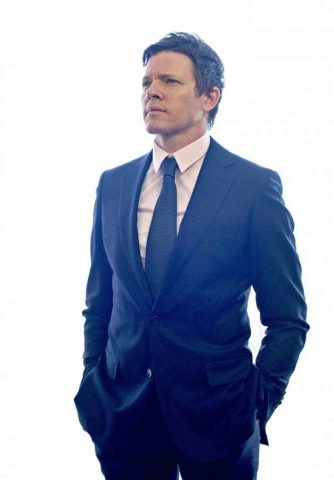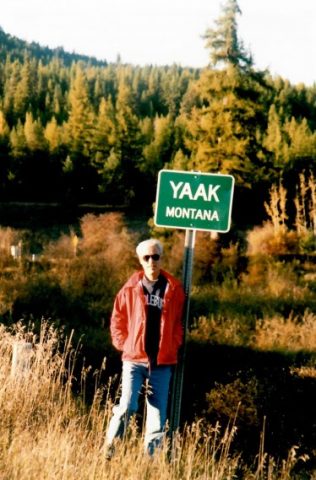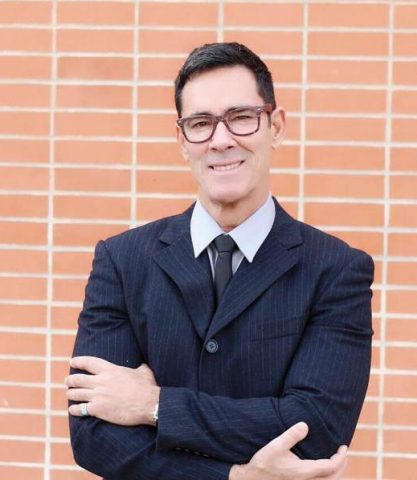
The 30th season of the Strawberry One-Act Festival, founded by Riant Theatre Artistic Director Van Dirk Fisher in 1995, will feature 31 short one-acts in competition, as well as three full-length plays. We caught up with the playwrights of this year's full-lengths about their work.
 Patrick Hamilton, Before the Fall
Patrick Hamilton, Before the Fall
Dates: Wed, July 19 at 9pm / Fri, July 21 at 9pm / Thurs, July 27 at 7pm / Sat, July 29 at 7pm
Tell us about your play!
Before the Fall is a play about three people who go to work at their office one morning only to have their world violently explode into chaos. Thrown into an existential crisis, they each desperately try to reconcile their situation and come to grips with the possibility of their own deaths. Through this process, they begin to understand what it means to die, but also what it means to live.
What have been the most exciting things about seeing your show jump from the page to the stage?
There is a lot about this show that I am excited to share with people. It touches on some very difficult and personal issues and it will have a strong effect on everyone who watches it. I’m happy to be working with such strong actors. The roles will require much from the three of us (I’m cast in one of the roles), and I think we are each committed to giving part of ourselves to honor the subject around which the play revolves. Our director has a strong vision, it really will be something to see.
Who are your favorite playwrights, past and present?
I have many favorites, but the few that come to mind: Martin McDonagh; Annie Baker; George Bernard Shaw; Sam Shepard; John Patrick Shanley.
What famous (or not so famous) line do you wish you’d written?
I was reading Norwegian Wood by Haruki Murakami while writing this play, and in it he writes, “Life is here, death is over there.” I like this very much because it’s such a simple statement, but one that perfectly encapsulates the human response to death. We treat dying as if it is in the distance, off in the future. But it’s always within reach of us and we could meet it at any time. It sounds trite, I know, but if you really think hard on death, I think you begin to see the triviality of most of what we do to distract ourselves from our own deaths. Ironically, it's only through the experience of imminent death or a close call that we are able to see the monumental waste of our precious time.
What would you change about the current state of theater?
Mainly the accessibility. I love the theater, but it has become increasingly hard to see everything you’d like because pricing has become prohibitive. I understand that it’s a business, and I’m okay with that, but at some point the purpose of theater -- bringing stories to people -- gets eclipsed by the bottom line. I think that’s what makes festivals like the Strawberry One-Act Festival so important -- it’s bringing you great new plays in an incredible venue for a very reasonable ticket.
How important is it to you that your work relate to our current political/social climate?
I believe that theater is an incredibly effective way to be heard in a socio-political climate that has become increasingly cluttered by hyper-partisanship (helped along by the Pandora’s Box we call social media). It’s one of the few art forms left that let artists and writers make really bold, unabashed statements about what we see happening in our society. For those who feel shut out or weak in today’s world, a play can be a powerful thing. We’re lucky to be able to produce these works, and I think that the artists involved (writers, actors, directors) understand the significance of what we are doing. It’s a beautiful thing.
 Richard A.F. Wien, Letter of Intention
Richard A.F. Wien, Letter of Intention
Dates: Fri, July 21 at 6:00pm / Wed, July 26 at 7pm / Sat, July 29 at 8:30pm
Tell us about your play!
LETTER OF INTENTION, based on the writings of the WWI soldier/poet Siegfried Sassoon, is set in the midst of an unnamed contemporary war. A SOLDIER has been confined to a mental institution for having publicly advocated an end to the hostilities which have locked each side into a bloody stalemate. Here he must fight a new battle, with the DOCTOR, a famous psychologist and pioneer in the treatment of PTSD, who has been charged with “curing” the SOLDIER of what is considered a grievous affront to his country and his regiment. Through the combative -- ultimately passionate and compassionate -- interplay between the play’s two principal protagonists, LETTER OF INTENTION explores such enduring subjects as the arguments for and against fighting, the importance of camaraderie among those in harm’s way, and the damage caused by wounds that cannot be seen (PTSD).
What have been the most exciting things about seeing your show jump from the page to the stage?
Being a first time playwright, the most exciting thing about having my play jump from the page to the stage is having the opportunity of seeing my play jump from the page to the stage.
Who are your favorite playwrights, past and present?
O’Neill & Chekhov.
What famous (or not so famous) line do you wish you’d written?
“From the rocking of the cradle to the rolling of the hearse” – Kris Kristofferson
What would you change about the current state of theater?
I’m impressed by the extraordinary variety of offerings in American theater today.
How important is it to you that your work relate to our current political/social climate?
My play has been written specifically to address how the political/social issues of today (especially war and PTSD) are mirrored in the past.
 Robert Ellsworth, Life Line
Robert Ellsworth, Life Line
Dates: Friday, July 21st at 7:30pm / Friday, July 28th at 6:00pm / Sunday, July 30th at 4:30pm
Tell us about your play!
They say horrible things happen in threes. Maybe that explains how I happened to lose not one, but three intimate people in my life. Suicide sucks. And anyone who thinks otherwise has not spent untold nights wondering why a loved one decided to take his life without warning. Their decisions would haunt me for the rest of my life, but their suicides also inspired me to volunteer at a suicide hotline. Little did I know that experience would become fodder for a dark comedy. The vagaries of volunteering there, although troubling, were stimulating and often hysterical and motivated me to tell the story, although fictional, of the fierce struggle between two hapless individuals forced to work together despite their antithetical world views. One of the prominent themes the play explores is the ongoing influence of the past on the present. Memory colors the present and forges the future. If you don’t let go of the emotional pain of memories, its burden prevents the attainment of peace or happiness. The main character and protagonist, Judith Cranston, is a protagonist defined by her past. An affluent, middle-aged woman, she possesses the distinct inability to let go of the past, whether it is her idealized memory of her daughter or a traumatic incident from her childhood. Carlos is both a mirror and a foil to Judith as their historical pain drives both characters. The past is vital in illuminating their motivations in the present. I use black humor to illustrate my point. Comedy's criticism of life emphasizes the human side of events and behavior, the good aspects as well as the bad ones and it allows me to illuminate what could be a very melancholy issue by means of humor.
What have been the most exciting things about seeing your show jump from the page to the stage?
A play entails much more than the words a writer puts on the page. Before the play can be fully realized in front of an audience, the director offers his insights and the actors bring in their own nuance and emotional life of the characters. An example is the character of Carlos was written as someone much younger than the actor cast in the production, but Ricardo, who plays Carlos in this production, gives the character of Carlos a much different take than I would have expected. What I do love about the jump from the page to stage is the collaboration between myself and the director and cast. As they respond to the script it takes on a new, fuller dimension. The festival offers us an opportunity to get my words seen by an audience on the East Coast. As a West Coast transplant, I am excited to see how it pans out.
Who are your favorite playwrights, past and present?
There are too many to name, but one of my earliest influences was Tennessee Williams. My grandmother gave me a collection of his plays and I would act out all the parts -- my favorite was Alexandra Del Lago, aka Princess Kosmonopolis, from Sweet Bird of Youth -- I was obsessed with Geraldine Page for decades! I also love Caryl Churchill, Lanford Wilson -- I was lucky enough to perform in a few of his plays back in my twenties, James Kirkwood, Amiri Baraka (Leroi Jones), Jon Robin Baitz, Michael Weller, Stephen Adly Guirgis, Stephen Karam, Danai Gurira and my mentor, José Cruz González, who is truly amazing.
What famous (or not so famous) line do you wish you’d written?
“Frankly my dear I don’t give a damn.” OK, I know that’s from a film, but it’s so friggin good!
What would you change about the current state of theater?
I wish that it was easier for new playwrights to break into the theatre scene. I read about the wonderful golden era of the 70s when there seemed to be an off off Broadway production on every corner and it wasn’t about making money.
How important is it to you that your work relate to our current political/social climate?
In this toxic political climate, it’s more important than ever to try to understand people with diametrically opposing viewpoints. I recently had a Trump supporter in my complex -- a lesbian feminist no less! -- nearly physically attack me when she heard me disparaging Trump’s policies. Instead engaging with her anger, I tried to understand where she was coming from, a situation much like what happens in Lifeline between Carlos and Judith.